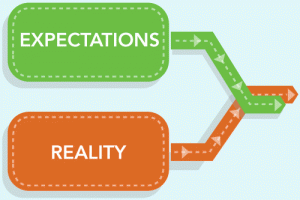Return on Expectation
Return on expectation evaluates the outcomes of learning by the stakeholders, in terms of the results after undertaking the intervention. It’s an effective way of showing the value of learning and development through return on expectation. It’s an approach to demonstrate and create the organizational value of learning.
The questions on the return on expectation approach:
- What original and exact expectations of the stakeholders for the learning or training?
- Have those expectations since changed or not?
- What changes have occurred as a result of the learning processes in the learning and development learning?
- To what extent have stakeholder expectations been met and how much is left?
The issues are there to consider the use of expectation. E.g. one should go for a realistic approach i.e. neither too tough to achieve or too easy to achieve. This is the role of the manager to make it possible to achieve the set goal. The most important part is that the expectation of the senior manager and the whole organization to be in line. They have to focus on the long-term results rather than the immediate changes or the needs of the team.
This also requires a clear understanding of the objectives. Emphasis on the key role played by the trainer/facilitator in setting objectives and comments “was the learning outcome clear or vague? In other words, did the designer user a target rifle or a shotgun approach to determining learning objectives?”
For certification in the L&D visit –


